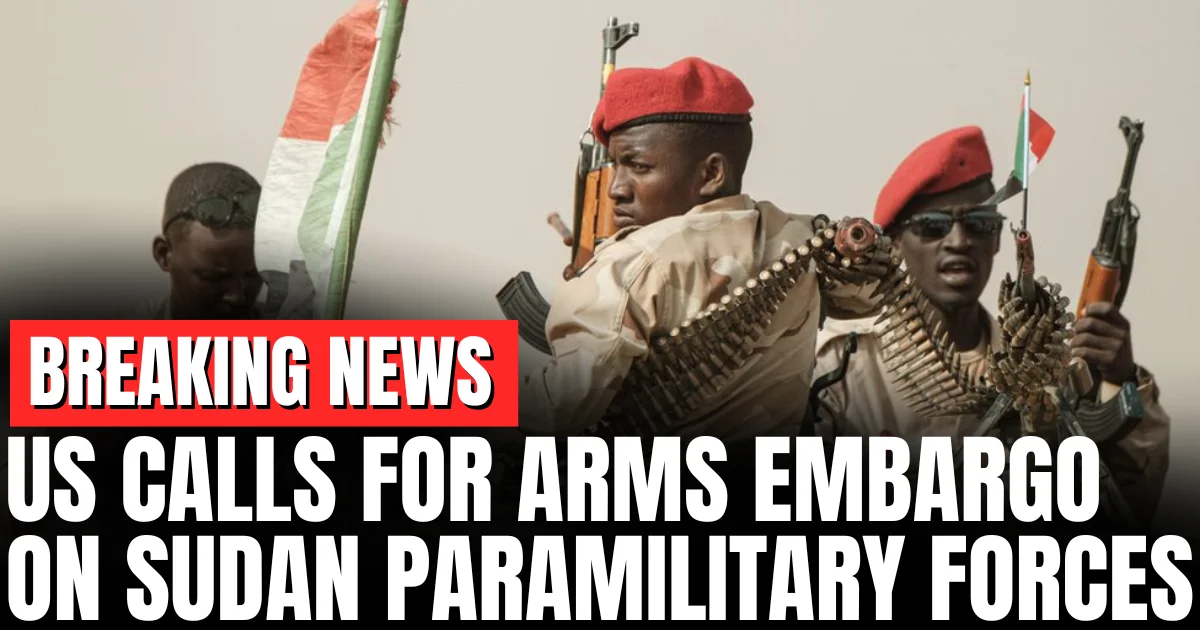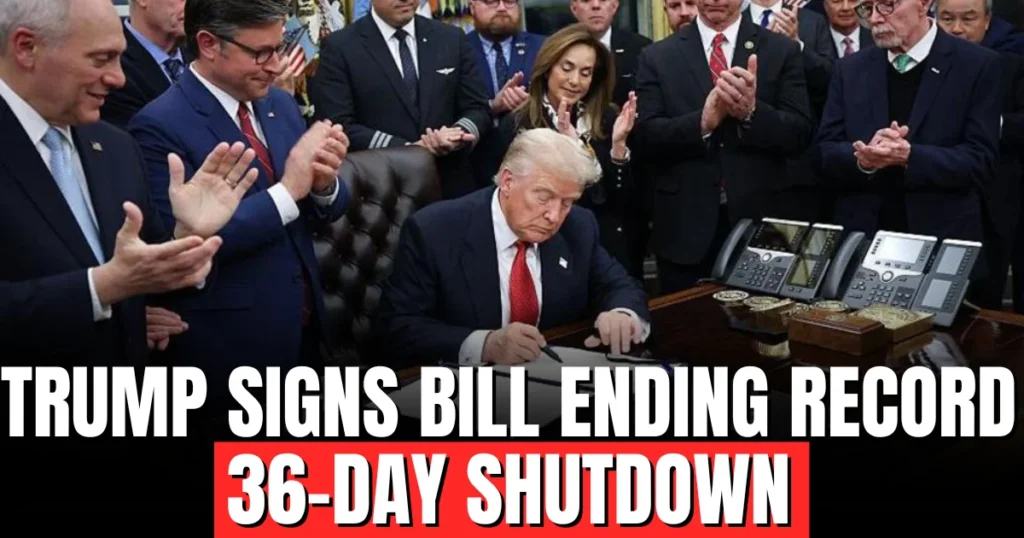US urges international action to halt weapons flow to Sudan’s RSF paramilitaries as humanitarian crisis affects 25M people. Diplomatic strategy & analysis!
Table of Contents
United States Urges Global Effort to Block Arms Flow to Sudanese Paramilitary Forces
Biden Administration Presses International Community to Enforce Weapons Embargo as Humanitarian Crisis Deepens in 22-Month Conflict
The United States has issued an urgent call for coordinated international action to halt the flow of weapons to paramilitary forces in Sudan, where a brutal 22-month conflict has created one of the world’s worst humanitarian catastrophes. U.S. officials are pressing the United Nations Security Council and regional governments to enforce existing arms embargoes and impose new restrictions on countries and entities supplying the Rapid Support Forces (RSF) with military equipment.
U.S. Ambassador to the UN Linda Thomas-Greenfield delivered the appeal during a Security Council session Wednesday, emphasizing that continued weapons supplies to the RSF enable atrocities, prolong conflict, and deepen civilian suffering. The statement comes as humanitarian organizations report over 14 million people displaced and famine conditions affecting multiple regions of the Northeast African nation.
“The international community must act decisively to cut off the weapons fueling this catastrophe,” Thomas-Greenfield stated. “Countries providing arms to the RSF bear responsibility for the violence, displacement, and starvation those weapons enable. We’re calling on all nations to enforce existing embargoes, impose new restrictions, and hold accountable those who profit from Sudan’s suffering.”
The diplomatic push reflects growing frustration with international inaction as the conflict between Sudan’s military government and the RSF paramilitary group enters its second year with no resolution in sight. U.S. officials cite intelligence showing continued arms shipments from multiple countries despite nominal embargoes, enabling both sides to sustain fighting rather than pursue negotiated settlement.
Understanding the Sudan Conflict
Origins and Key Actors
How the War Started:
The conflict erupted in April 2023 when tensions between two rival factions exploded into open warfare:
Sudanese Armed Forces (SAF):
- Official military led by Gen. Abdel Fattah al-Burhan
- Controls government institutions
- Based in Port Sudan (temporary capital)
Rapid Support Forces (RSF):
- Paramilitary group led by Mohamed Hamdan Dagalo (“Hemedti”)
- Evolved from Janjaweed militia (Darfur genocide perpetrators)
- Controls significant territory including parts of Khartoum
Root Causes:
- Power struggle between military factions
- Competition for economic resources (gold, agriculture)
- Failure of democratic transition after 2019 revolution
- Ethnic and regional tensions
Humanitarian Catastrophe
By the Numbers:
Displacement:
- 14.7 million people forcibly displaced (internal and refugees)
- Largest displacement crisis globally
- 3.1 million fled to neighboring countries
Food Insecurity:
- 25 million people (over 50% of population) need humanitarian aid
- Famine conditions in multiple regions
- Agricultural production collapsed
Casualties:
- Estimated 150,000+ deaths (direct violence and indirect causes)
- Exact toll unknown due to access limitations
Infrastructure Collapse:
- Healthcare system 70% non-functional
- Schools closed, education disrupted
- Water and sanitation systems destroyed
- Economic activity severely contracted
Source: UN OCHA, World Food Programme, displacement tracking organizations
The Weapons Supply Problem
Who’s Arming the RSF?
Documented Supply Chains:
U.S. intelligence and UN investigations identify several countries allegedly supplying the RSF:
United Arab Emirates (Primary Concern):
- Alleged provision of drones, armored vehicles, ammunition
- Weapons transit through Chad and Libya
- UAE denies allegations but evidence substantial
- Strategic interest in RSF due to economic investments and Red Sea access
Libya:
- Weapons flow across porous border
- Libyan armed groups allied with RSF
- Legacy stockpiles from Gaddafi era
- Difficult to control given Libya’s instability
Chad:
- Alleged transit route for weapons from UAE
- Chadian government denies facilitation
- Border security challenges
- Ethnic ties between Chadian groups and RSF
Russia/Wagner Group:
- Historical ties to both factions
- Gold mining interests in RSF-controlled areas
- Reports of equipment provision
- Strategic interest in African foothold
Arms Embargo Violations
Existing Restrictions:
UN Arms Embargo (Darfur):
- In place since 2004 for Darfur region
- Widely violated with minimal enforcement
- Lacks comprehensive Sudan coverage
- No meaningful accountability mechanisms
Current Challenges:
- Porous borders difficult to monitor
- Limited international enforcement capacity
- Countries deny involvement despite evidence
- Economic incentives override compliance
US Diplomatic Strategy
What the US Is Proposing
Multi-Pronged Approach:
1. Strengthened UN Embargo:
- Expand coverage to all of Sudan
- Enhanced monitoring mechanisms
- Sanctions on violators
- Mandatory reporting requirements
2. Bilateral Pressure:
- Direct engagement with UAE, Egypt, Chad
- Evidence sharing of violations
- Consequences for continued supply
- Incentives for compliance
3. Financial Sanctions:
- Target individuals and entities facilitating weapons flows
- Bank restrictions
- Asset freezes
- Secondary sanctions on violators
4. Regional Diplomacy:
- Work through African Union and IGAD (regional organization)
- Engage neighboring countries on border security
- Support alternative economic development
- Conflict mediation efforts
Obstacles to Success
Significant Challenges:
Geopolitical Complexity:
- UAE is U.S. security partner despite alleged RSF support
- Regional countries have competing interests
- Great power competition (Russia, China influence)
- Limited U.S. leverage in region
Enforcement Capacity:
- UN lacks resources for effective monitoring
- Border areas remote and insecure
- Countries prioritize national interests over compliance
- Verification difficult
Economic Incentives:
- Arms sales profitable
- Gold mining rights (RSF controls major gold deposits)
- Strategic positioning
- Commercial interests override humanitarian concerns
International Response
Regional Reactions
African Union:
- Supports peace efforts but divided on approach
- Some members have relationships with both factions
- Limited enforcement capability
- Mediation attempts repeatedly failed
IGAD (East African Bloc):
- Leading mediation efforts
- Proposed peace talks repeatedly rejected or collapsed
- Member states have conflicting interests
- Egypt and UAE not members but influential
Egypt:
- Supports SAF (military faction)
- Concerned about Nile water security
- Provides weapons to government forces
- Opposes international intervention
Chad:
- Complicated position (ethnic ties, transit allegations)
- Hosts hundreds of thousands of refugees
- Economic stress from displacement
- Security concerns about spillover
European Union Position
EU Statement:
- Supports U.S. call for arms embargo enforcement
- Providing humanitarian assistance (€250+ million)
- Sanctions on individuals
- Limited enforcement capability
Individual Countries:
- UK, France, Germany support diplomatic efforts
- Humanitarian aid provision
- Reluctant to confront UAE (major partner)
- Focus on displacement crisis
Humanitarian Organizations’ Perspectives
Aid Agency Concerns
Access Restrictions:
- Both sides obstruct humanitarian access
- Bureaucratic impediments
- Aid workers targeted
- Supplies looted or diverted
Funding Gaps:
- UN humanitarian appeal only 32% funded
- Donor fatigue amid multiple global crises
- Sudan crisis receiving insufficient attention
- Critical needs unmet
Amnesty International:
“Weapons continue flowing to the RSF despite documented atrocities including ethnic cleansing, sexual violence, and indiscriminate attacks on civilians. Countries supplying arms are complicit in these crimes.”
Human Rights Watch:
“Both the RSF and SAF have committed war crimes. International arms embargoes must apply to all parties, and enforcement mechanisms must have teeth, not just paper commitments.”
What Happens Next
Diplomatic Timeline
Immediate (Weeks):
- U.S. bilateral engagement with key countries
- UN Security Council discussions
- Evidence compilation and sharing
- Regional diplomatic pressure
Short-Term (Months):
- Potential new UN resolution on arms embargo
- Sanctions designations
- Mediation attempts
- Monitoring mechanism proposals
Long-Term (6-12 Months):
- Enforcement assessment
- Potential military supply reduction
- Impact on conflict dynamics
- Peace negotiation prospects
Realistic Outcomes
Optimistic Scenario:
- International pressure reduces arms flow
- Military stalemate forces negotiations
- Humanitarian access improves
- Transitional government emerges
Pessimistic Scenario:
- Arms continue flowing despite rhetoric
- Conflict persists indefinitely
- Humanitarian catastrophe deepens
- State collapse and regional instability
Most Likely:
- Partial reduction in weapons supply
- Continued low-intensity conflict
- Humanitarian crisis persists
- Incremental diplomatic progress
Frequently Asked Questions (FAQs)
What is the conflict in Sudan about?
The Sudan conflict began in April 2023 when the Sudanese Armed Forces (SAF), led by Gen. Abdel Fattah al-Burhan, and the Rapid Support Forces (RSF) paramilitary group, led by Mohamed Hamdan Dagalo, began fighting for control after years of uneasy power-sharing. The war stems from competition for political power, economic resources including gold mines, and failure of democratic transition after Sudan’s 2019 revolution. The 22-month conflict has created massive humanitarian catastrophe with 14.7 million displaced and famine conditions.
Why is the US calling for weapons embargoes against the RSF specifically?
The US focuses on the RSF because intelligence indicates the paramilitary group receives weapons from external countries including allegedly the UAE, despite having no legitimate state authority. The RSF has been documented committing atrocities including ethnic cleansing, mass sexual violence, and indiscriminate civilian attacks. While the US also criticizes SAF actions, the RSF’s lack of legitimate government status and documented human rights abuses make it the primary target for embargo enforcement efforts.
Which countries are allegedly supplying weapons to Sudan’s paramilitaries?
U.S. intelligence and UN investigations identify the United Arab Emirates as the primary alleged supplier to the RSF, reportedly providing drones, armored vehicles, and ammunition via Chad and Libya. Other sources include Libya (weapons crossing porous borders), Chad (alleged transit route), and Russia/Wagner Group (historical ties and gold mining interests). Egypt allegedly supplies the SAF government forces. Most accused countries deny involvement despite evidence from monitoring organizations and intelligence agencies.
How effective are UN arms embargoes in conflicts like Sudan?
UN arms embargoes have mixed effectiveness and often fail without strong enforcement. Sudan’s existing Darfur embargo (since 2004) has been widely violated with minimal consequences. Challenges include porous borders difficult to monitor, limited UN enforcement capacity, countries denying involvement despite evidence, and economic incentives overriding compliance. Effective embargoes require political will from major powers, robust monitoring mechanisms, consequences for violations, and cooperation from neighboring countries—elements often lacking in practice.
What can be done to help Sudan’s humanitarian crisis?
Immediate humanitarian needs require increased international funding (current UN appeal only 32% funded), pressure on both warring parties to allow humanitarian access, protection of aid workers and civilians, and support for neighboring countries hosting millions of refugees. Long-term solutions require ending weapons flows to both sides, sustained diplomatic pressure for ceasefire negotiations, accountability for war crimes, and eventual political transition. Individuals can support reputable humanitarian organizations working in Sudan and advocate for government attention to the crisis.
Conclusion: Urgent Action Needed as Crisis Deepens
The United States’ call for international action to cut weapons supplies to Sudan’s paramilitaries addresses a critical enabler of ongoing violence, but success requires overcoming significant geopolitical obstacles and competing national interests. The RSF’s continued access to weapons—allegedly from the UAE and other sources—allows the paramilitary group to sustain military operations, commit atrocities, and resist negotiated settlement.
The humanitarian stakes could not be higher. With 14.7 million people displaced, famine conditions spreading, and 25 million needing assistance, Sudan faces catastrophic human suffering that demands international response. Yet the crisis receives insufficient global attention, funding falls dramatically short of needs, and weapons continue flowing despite rhetorical commitments to peace.
Whether the U.S. diplomatic push succeeds depends on factors largely beyond American control: the willingness of the UAE and other suppliers to prioritize humanitarian concerns over strategic interests, UN Security Council unity despite great power divisions, regional cooperation despite competing agendas, and sustained international attention to a crisis competing with Ukraine, Gaza, and other emergencies.
History suggests caution. Arms embargoes in complex conflicts often fail due to enforcement challenges, economic incentives for violations, and lack of political will. Yet the alternative—continued weapons flows enabling indefinite conflict—guarantees prolonged suffering for millions of Sudanese civilians caught between warring factions.
For now, the U.S. has issued its call. The international community’s response will determine whether rhetoric translates to meaningful action or whether Sudan’s crisis continues largely ignored as weapons fuel a conflict with no end in sight.

